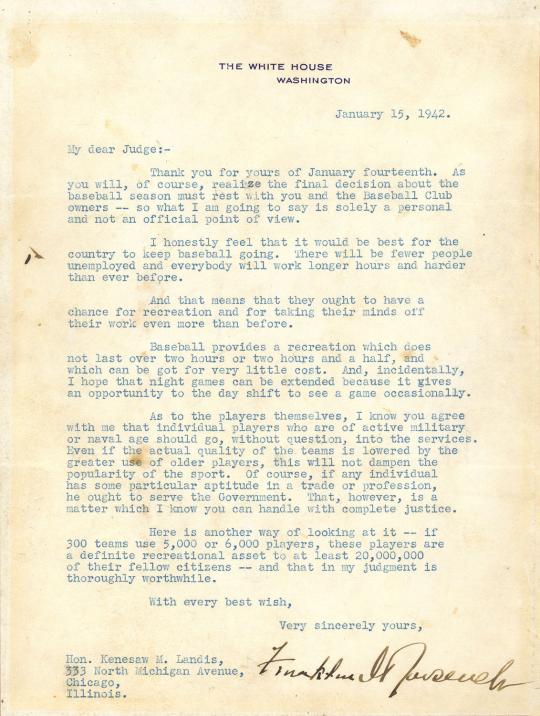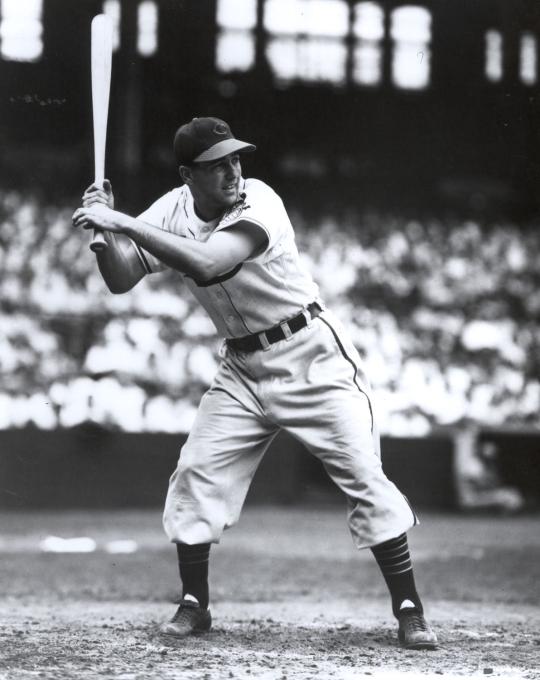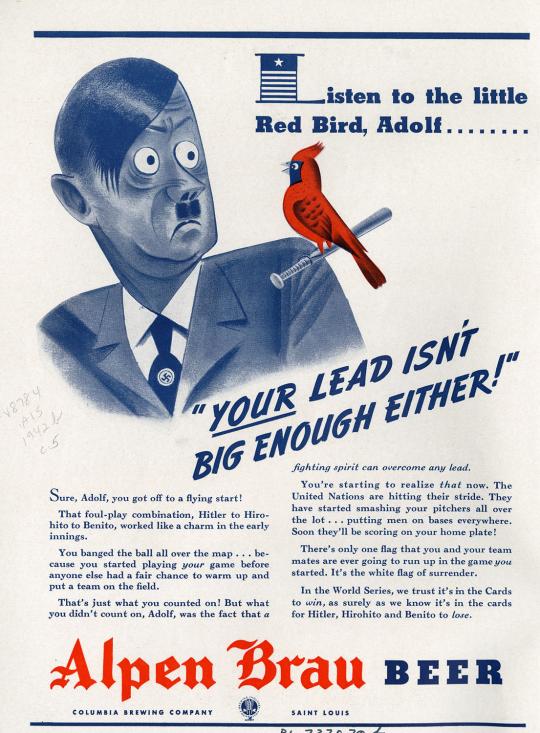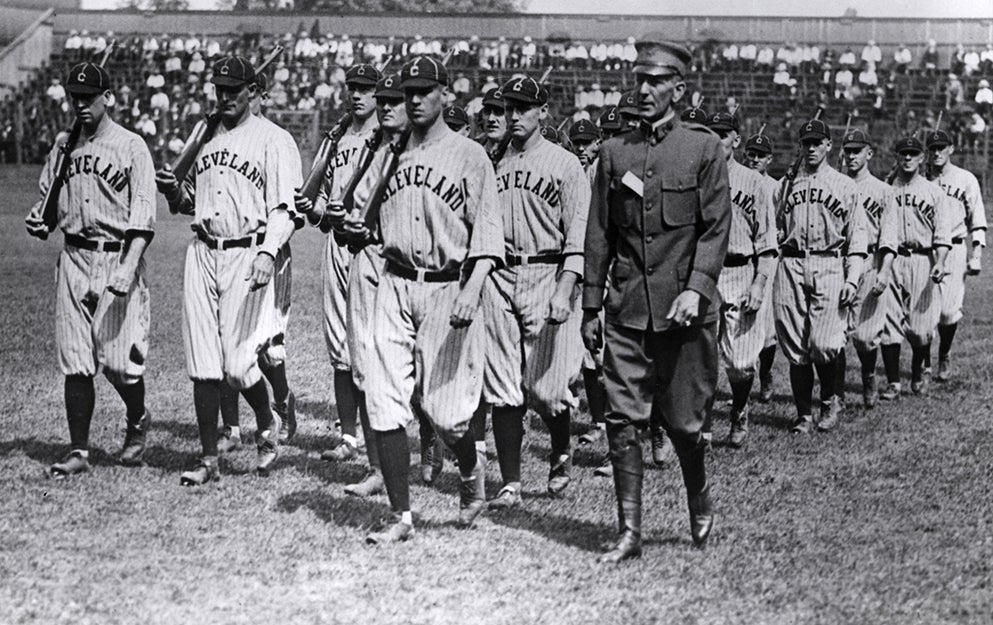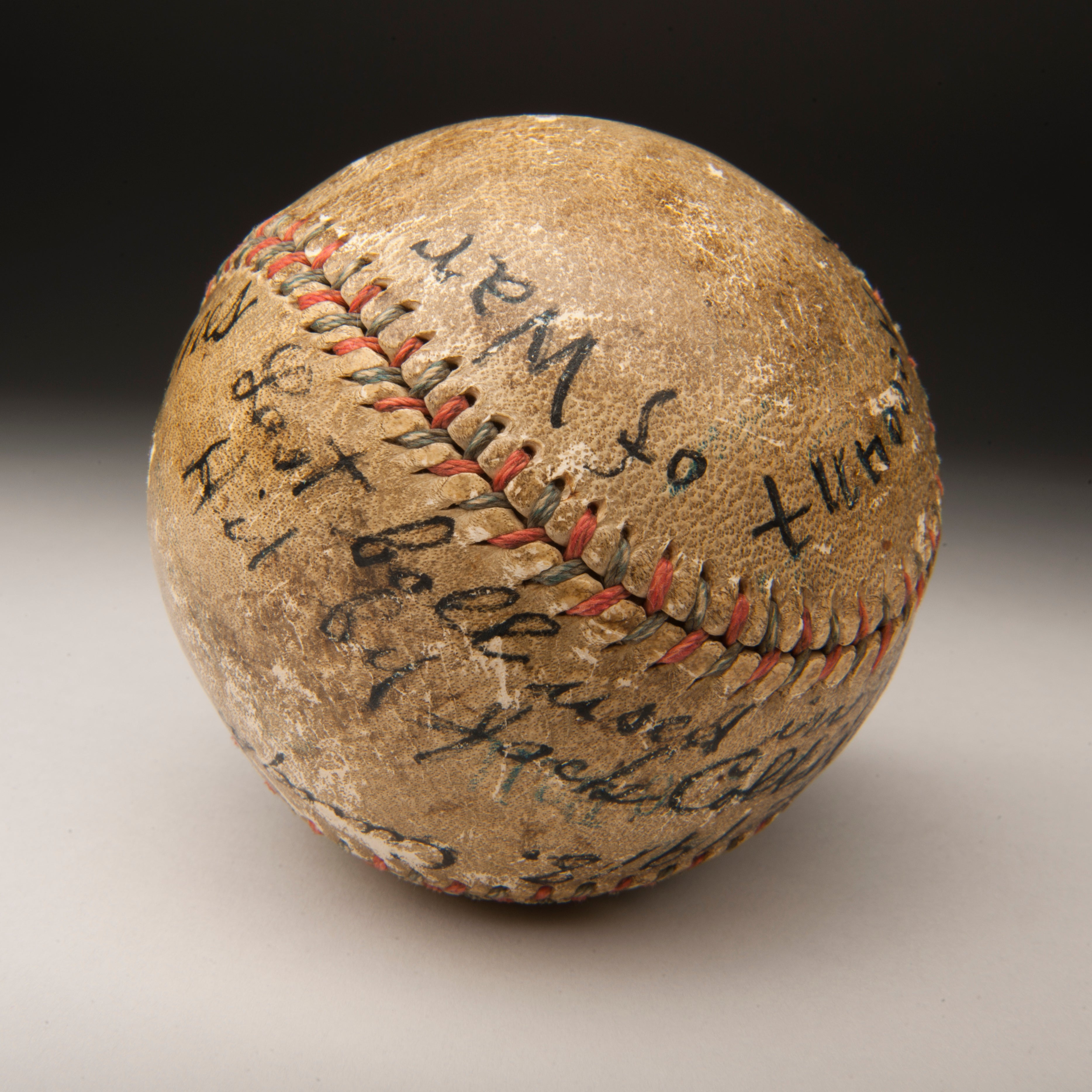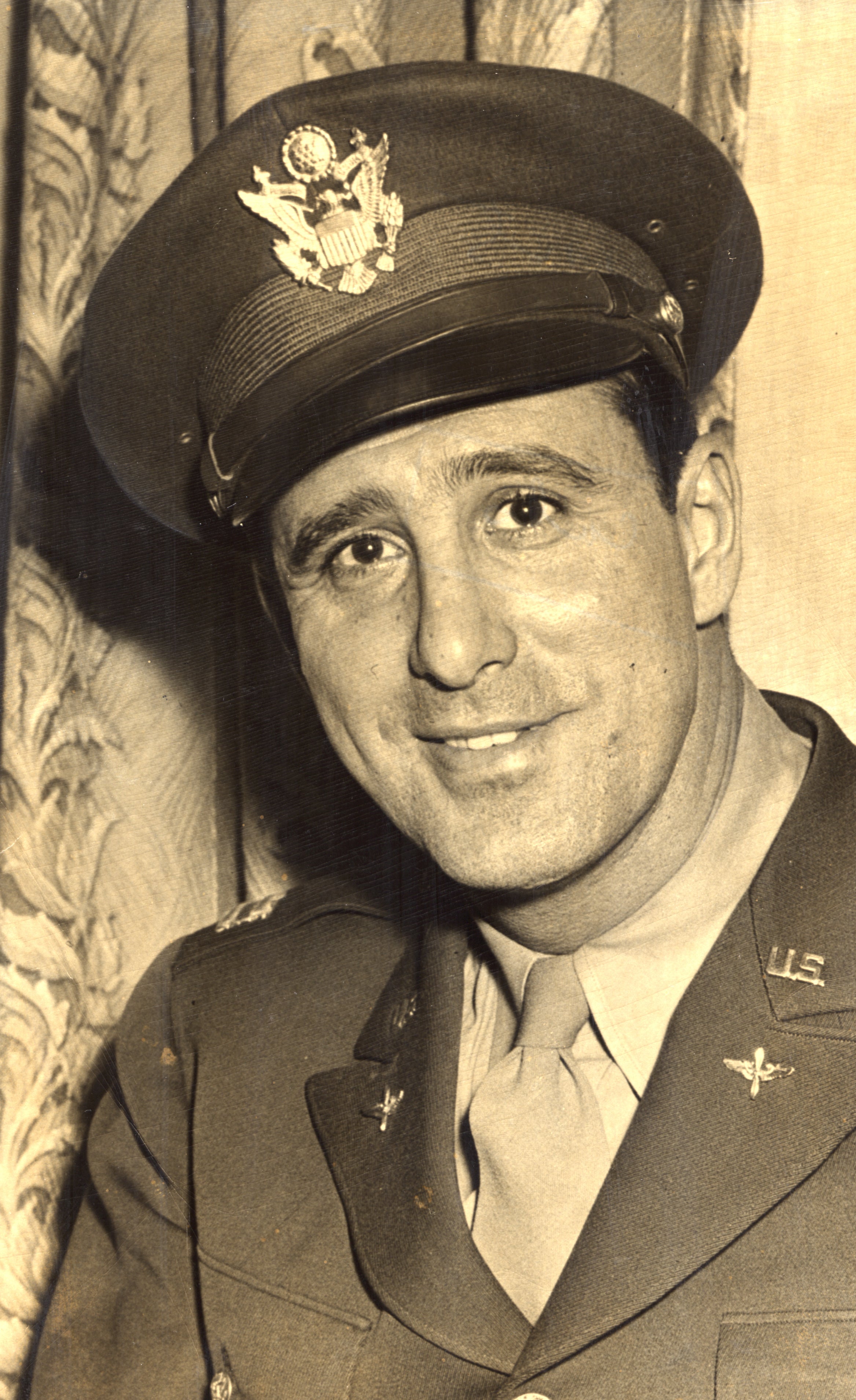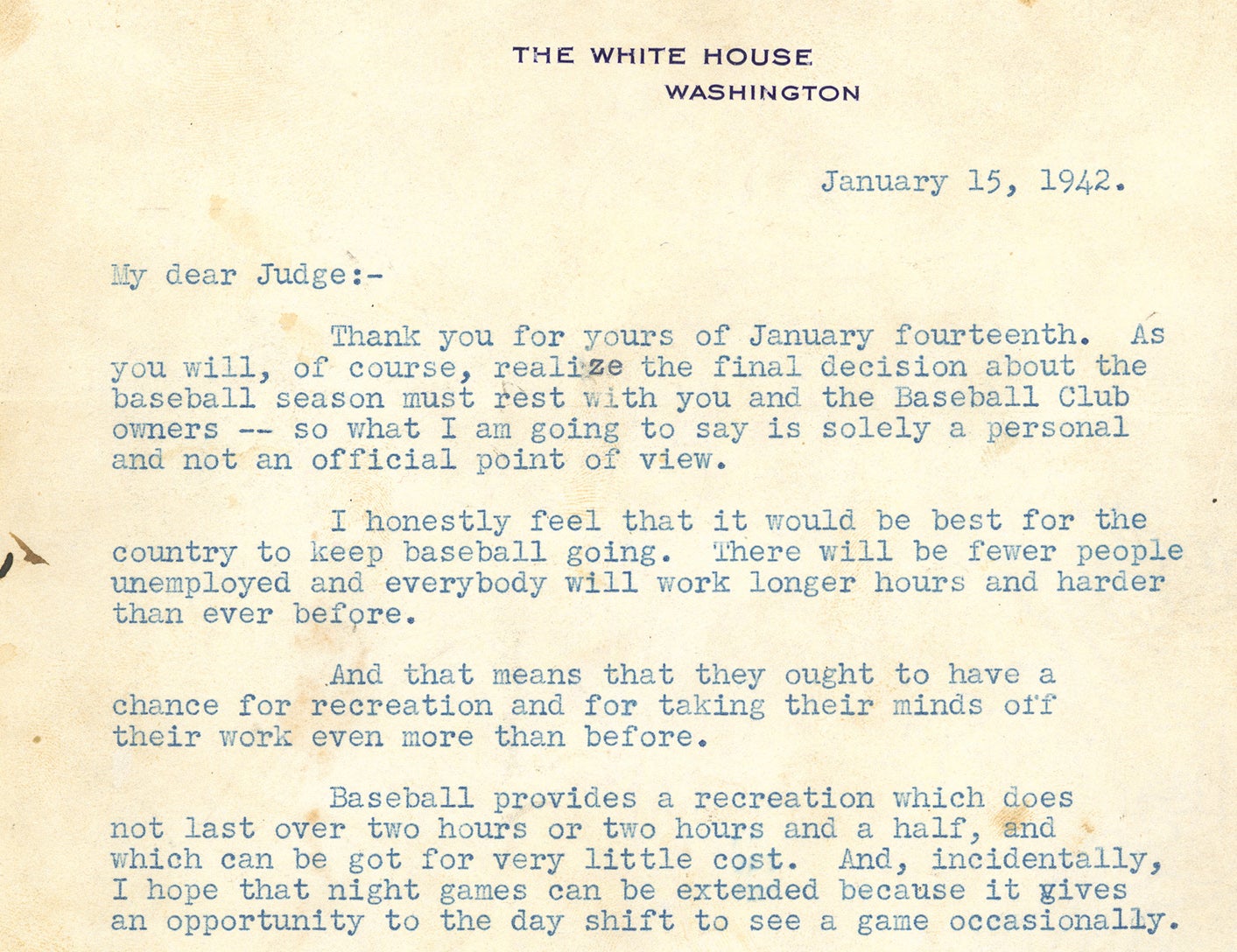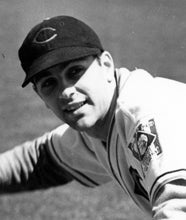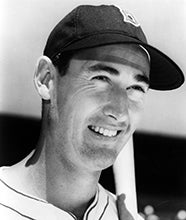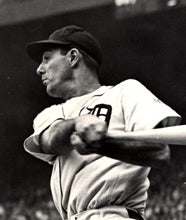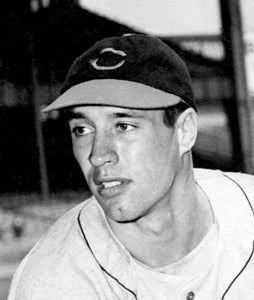- Home
- Our Stories
- Lou Boudreau Hits a Lead-Off Home Run in All-Star Game
Lou Boudreau Hits a Lead-Off Home Run in All-Star Game
When Lou Boudreau, the Cleveland Indians' 24-year-old shortstop/manager, stepped in the right-handed batters' box to lead off the 1942 All-Star Game in the Polo Grounds, far weightier matters than the Midsummer Classic were on people’s minds.
That very day – July 6 – a young Jewish girl named Anne Frank and her family went into hiding in an attic in Amsterdam, desperately trying to avoid the Nazis. Days earlier, the U.S. Air Force launched its air campaign in Europe. America desperately needed a distraction, and seventy-six years ago this week, Boudreau delivered it with a homer into the left-field seats of the Polo Grounds.
The entry of the United States into World War II affected everyone – regardless of race, socioeconomic status or gender. No one understood this better than President Franklin Delano Roosevelt, who in his “Green Light Letter” to Commissioner Kennesaw Landis, emphasized baseball’s importance to the country – particularly in war time.
“I honestly feel that it would be best for the country to keep baseball going. There will be fewer people unemployed, and everybody will work longer hours and harder than ever before,” the President wrote in January of 1942. “And that means that they ought to have a chance for recreation and for taking their minds off their work.”
Boudreau’s home run would not be the highlight of his 12-year career, by any means. With a lifetime average of .295 and four more All-Star games ahead of him – all while managing his own team to an overall 728-649 record – he was well on his way to the Hall of Fame. But on that night he was more than an All-Star shortstop; he was a beacon of normalcy with a baseball bat, providing the nation with a brief respite from the turmoil and tragedy that was World War II.
Hall of Fame Membership
There is no simpler, and more essential, way to demonstrate your support than to sign on as a Museum Member.
Indians Gear
Represent the all-time greats and know your purchase plays a part in preserving baseball history.
From 1942-1945, hundreds of players would trade in their baseball uniforms for military ones – Ted Williams, Bob Feller and Hank Greenberg, to name a few – but the game continued on, a morale booster for the people, and a fund-raiser for the war effort. The New York Times reported that the 1942 All-Star Game alone raised $95,000 for the Bat and Ball and Army and Navy Relief Funds. By the end of the year, organized baseball would contribute $1,295,000 to war charities.
It's not likely that any of this was on Boudreau’s mind as he approached the batter’s box that night. Regardless, the “Boy Manager” honored Roosevelt’s wishes, to the delight of 33,694 fans in the Polo Grounds. Four hitters later, Rudy York of the Tigers crushed a two-run homer to widen the run differential.
The Tigers' Al Benton made the lead hold up, entering the game in the fifth inning, closing it out in the ninth by retiring Mel Ott on a foul pop, Enos Slaughter on a long fly to center – swallowed up by the cavernous Polo Grounds outfield – and Ernie Lombardi on a fly to right. The AL celebrated a 3-1 victory that took just over two hours to complete. Not long after the players left the field, the ominous aura of wartime returned, as New York City went dark, part of the energy-saving, government-mandated blackout.
This advertisement for Alpen Brau Beer, featuring Adolf Hitler, was used in the 1942 World Series Program. The poster tells Hitler that "in the World Series, we trust it's in the Cards to win, as surely we know it's in the cards for Hitler, Hirohito and Benito to lose." (National Baseball Hall of Fame)
Share this image:
Alex Coffey was the communications specialist at the National Baseball Hall of Fame

